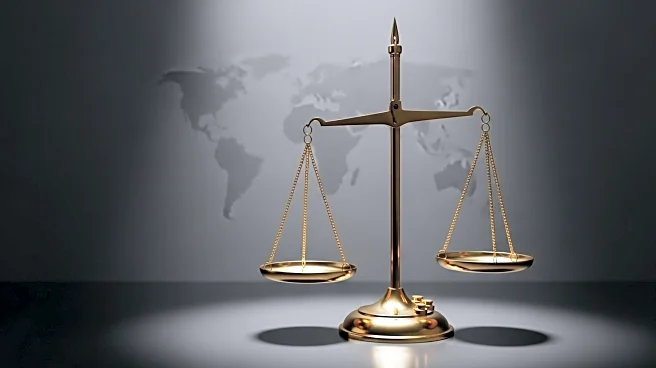What's Happening?
President Trump is planning to issue an executive order requiring voter ID, a move that comes alongside his decision to cut $4.9 billion in foreign aid funding. The aid cuts, announced by the Office of Management and Budget, utilize a 'pocket rescission' process, which allows the White House to request budget cuts late in the fiscal year, potentially bypassing congressional approval. This decision has sparked bipartisan criticism, with Sen. Susan Collins and Sen. Chris Murphy expressing concerns over the legality and implications of the move. The cuts follow previous congressional actions to reduce USAID funding, but Trump's approach is seen as sidestepping legislative authority.
Why It's Important?
The executive order on voter ID could significantly impact voting accessibility and election processes, potentially leading to legal challenges and political debates. The foreign aid cuts may affect U.S. diplomatic relations and international development efforts, as USAID plays a crucial role in global humanitarian initiatives. The administration's use of 'pocket rescission' raises questions about executive power and the balance of authority between the White House and Congress. These developments could influence upcoming budget negotiations and legislative priorities, affecting both domestic and foreign policy.
What's Next?
The executive order on voter ID is likely to face scrutiny and potential legal challenges from civil rights groups and political opponents. Congress may respond to the foreign aid cuts with legislative actions or hearings to address concerns over executive overreach. The administration's budgetary decisions could impact future negotiations and the stability of bipartisan agreements, particularly as the fiscal year progresses.
Beyond the Headlines
The voter ID requirement and foreign aid cuts reflect broader themes of national security and fiscal conservatism within the Trump administration. These actions may influence public discourse on government transparency, electoral integrity, and the role of the U.S. in global affairs. The developments could also affect the political landscape ahead of upcoming elections, shaping party platforms and voter engagement strategies.










